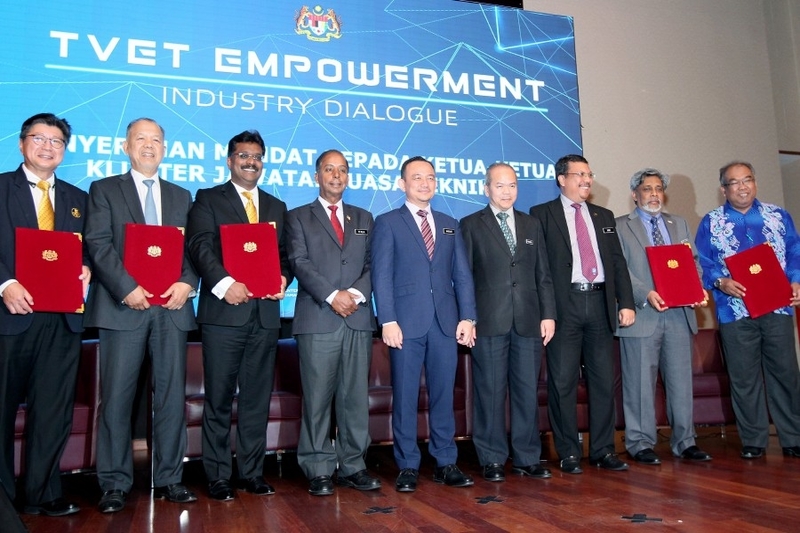
The Human Resources Ministry inked a memorandum of understanding with the Chinese government to enhance cooperation in the technical and vocational education training (TVET) and technologies related to the Fourth Industrial Revolution (IR4.0).
The immense technological strides China has made in recent years are evident; the country has become a technological dragon in fields such as artificial intelligence, nanotechnology and biotechnology.
Malaysia stands to reap immense benefit tapping into China’s technological prowess.
Human Resources Minister’s decision to enhance technological transfer via China’s Education Association for International Exchange has been lauded as the right decision.
This will allow Malaysian workers to upskill and reskill in fields where China has a distinct advantage.
The days of labour-intensive manufacturing are over and Malaysia needs knowledge workers to keep pace with the latest demand in a globalised cut-throat economy.
In this respect, having China as a strategic partner in TVET is beneficial. The pivot towards TVET started since the Minister took office and this is a step in the right direction. Countries like Germany and Japan are technological giants because of their emphasis on TVET.
Malaysia looking into more cross-fora tech collaborations
According to another report, China proposed a collaboration in areas of technology exchange as well as halal products and services with Malaysia during discussions about potential collaboration in the area of Small and Medium Enterprises (SMEs) and start-ups.
The Malaysian Minister of Entrepreneur Development (MED) stated that the bilateral discussions were held during the 25th Asia-Pacific Economic Cooperation (APEC) Small and Medium Enterprises Ministerial Meeting (SMEMM) in Concepción, Chile.
The MED Minister, who led the Malaysian delegation to the two-day ministerial meeting which ended yesterday, also had a series of bilateral discussions with the relevant counterparts and senior officials from Chile, Peru and the US regarding potential collaboration in the area of SMEs and start-ups.
Preceding the SMEMM, officials also met for a two-day meeting of the 49th SME Working Group (SMEWG), where Malaysia made a presentation on the National Entrepreneurship Policy (NEP), which was launched on 11 July 2019.
The NEP, Malaysia’s first national policy document on entrepreneurship, was well-received by the APEC economies. Some economies also expressed their interest to learn from Malaysia’s experience in this area of policymaking.
The APEC SME Ministers recognise the key role of SMEs as an essential source of economic growth and dynamism, along with the importance of digital transformation, financing and globalisation.
The APEC SME Ministers will also continue to support cross-fora collaboration to address the issue of ethics in promoting transparency and integrity as these are vital in the process of internationalisation of SMEs.
During the meeting, the MED Minister gave a presentation on Malaysia’s experience vis-à-vis digitalisation for SMEs and entrepreneurs, highlighting the role of innovation and technology as well as high growth start-ups in advancing the growth of the SME ecosystem in Malaysia.
It was stressed that these are integral enablers that serve to increase efficiency as well as productivity of SMEs and consequently expand their market reach.
Malaysia will continue to focus on the creation of high-growth and innovative businesses through targeted assistance in automation, digitalisation and robotics while increasing support for micro-enterprises and start-ups.
The Minister also highlighted the importance of using cybersecurity to protect SMEs in a connected world while pursuing the digitalisation agenda and called for such discussions to be escalated in future APEC SME activities.
Internationalisation goes beyond exports and imports; the Minister further suggested that the concept of internationalisation encompasses activities such as licensing, franchising, subcontracting agreements, providing avenues for foreign direct investment (FDI), joint ventures (JVs) and exchange of technology.





















